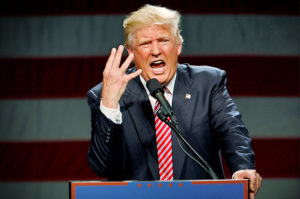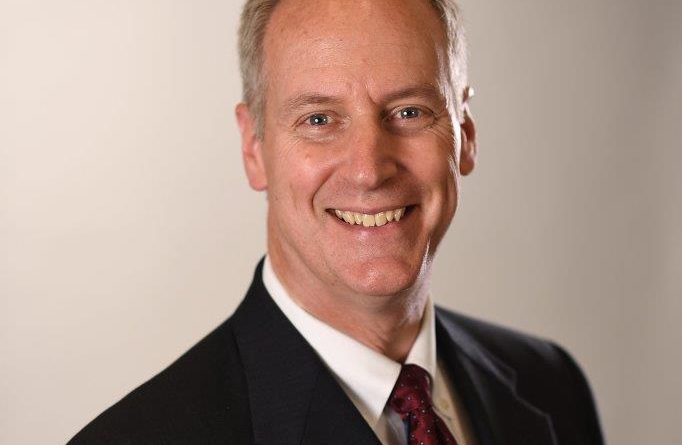What is Truth? By R. Ward Holder
“Jesus said, ‘For this I was born, and for this I came into the world, to testify to the truth. Everyone who belongs to the truth listens to my voice.’ Pilate asked him, ‘What is truth?’” John 18.37b-38a
I sometimes introduce this passage to my students with the phrase, “And now from one of my favorite theologians, Pontius Pilate…” After the chuckles, I explain that if theology is, at least in part, about asking good questions, Pilate hits a home run with this one. What is the truth? Behind that question lies a host of others – to whom do I owe the truth? What does being untruthful imply about me, about my conscience, and about the community? Are Christians obligated to tell the truth? All the time? Both the biblical witness and the history of Christian thought bring important insights into these questions.
The question is inescapable for Christians because of the ninth commandment, “You shall not bear false witness against your neighbor.” (Exodus 20.16, Deuteronomy 5.20) Both versions of the commandment present the prohibition as an assault on the neighbor, as a subversion of the divinely ordered community. The community could not survive with this action – to lie against the neighbor was to deprive him or her of justice, and of a place in the community that was gained through God’s creation and election.
Jesus took this up in the New Testament. First, he supported the commandments by denying that he had come to abolish them. (Matthew 5.17-18) He sharpened this by claiming to be the truth itself (John 14.6); and that his purpose in being born was to testify to the truth. Truth is basic to Christianity – the way of life is incomprehensible without it.
The Christian tradition presents a host of analysts of truth, or of failing to tell the truth. Augustine of Hippo, (354-430), wrote a treatise entitled On Lying (De Mendacio). In it he argued that lying undercut the very purpose of human communication – it perverted the function of language in the church and in the community. While Augustine carefully distinguished those acts that were not lies, such as simply being wrong, he attacked the idea of the morality of a good lie.
John Calvin, (1509-1564), in his exposition of the Decalogue in the 1559 edition of the Institutes of the Christian Religion, began with a brief statement that since God (who is truth) abhors a lie, we must practice truth toward one another. (ICR, II.viii.47) Calvin prohibited the intentional telling of false statements, either to damage the neighbor’s reputation or to deprive them of their goods. But as was his habit, Calvin went from the negative formulation of the commandment to its positive opposite. Thus, not only was lying about the neighbor condemned, but also attacking our neighbors in witty, caustic sarcasm, or any form of evil speech about our neighbor. It has been widely noted that Calvin himself did not always succeed in following these precepts. But his teaching was clear, and biblically grounded.
Immanuel Kant, (1724-1804), is frequently held up as a philosopher who took the prohibition against lying to its furthest logical conclusion. Kant proceeded from logical, rather than biblical premises. In a short essay published in 1797, “On a Supposed Right to Lie from Philanthropy,” Kant argued that to be truthful was a sacred command of reason, that did not allow for exceptions for convenience’ sake. The most significant example he gave was that if someone intending to be a murderer came to a person’s house and asked whether his intended victim was hiding in the house, the person still should tell the truth. While some interpreters of Kant’s thought have attempted to soften the impact of this, Kant saw this position as necessary for performing one’s duty in society.[1]
I hope that my consideration of the biblical and orthodox doctrinal traditions, while brief, have made it obvious – truth is basic to any Christian community, and lying is not merely frowned upon, but is a subversive act that behaves as a cancer in the community and in the relationship with the divine. Moses said it, Jesus said it, and the past almost two millennia of Christian witnesses have consistently supported it. Whether speaking biblically, theologically, or rationally, truth-telling is essential for Christianity.

So the question that sits before American Christians today is why Donald J. Trump gets a pass on this from those claiming to be evangelical Christians? To be clear, I am not attacking Trump, but rather those Christian evangelicals who support him. From them, since November, there has been a deafening silence on this question. If we accept the definition of evangelicals that Frances Fitzgerald proposes, that she takes over from David Bebbington and with which Randall Balmer basically agrees, they are marked first and foremost by a reliance on the Bible as their ultimate religious authority and tend to read it literally.[2] So evangelical Christians must take these passages about lying and the truth in their Bibles seriously.
That Trump regularly lies is not at question. Sometimes, it’s just silly and laughable, as when he argues against all evidence that the crowd at his inauguration was the largest in history.[3] Sometimes, it’s far more consequential, such as when he tweeted that Barack Obama had wiretapped him, or that he knew of 3 million illegal votes cast for Hillary Clinton.[4] It’s become so bad that his supporters have started a cottage industry of denying that he lies. Corey Lewandowski likened him to someone telling stories in a bar.[5] Ann Coulter says he’s a B-S-er.[6]
But the evangelical community remains mute on the question. Mega-church pastor and Trump supporter Robert Jeffress stated throughout the campaign that evangelicals who supported Trump were being politically astute – not that they were unaware of his lapses, but that he must be viewed against other political possibilities.[7] Jeffress dropped this caution once Trump won the election, and in a sermon on Inauguration Day likened Trump to a new Nehemiah – called with a purpose from God.[8]
Jeffress’ words should awaken Christians. He did not call Trump the new Cyrus, a Persian king whom the Lord had chosen even though he was not of the faith (Isaiah 41:2-25; 42:6; 44:28; 45:1-6, and over 20 0ther references). No, Jeffress made Trump out as a leader of the chosen people, the elect of God, one who would know the divine law by heart and apply it with vigor. If Trump is a Nehemiah, and proceeding as a divinely ordained leader, then his repeated and habitual actions can be seen as a model of action. If that is the case, Christians no longer are prohibited from lying. If Christians are no longer prohibited from lying in the public sphere, why should we believe that they are prohibited at home, or in any sector of their lives?
We return to the point where we began – that lying or failing to recognize the truth eviscerates the community, the people called out by God to be his people. The biblical prohibition against bearing false witness always recognized the communal aspect. The point is not to attack political evangelicalism as not truly a form of Christianity. Rather, the issue is to see, almost as a lab experiment, what happens to a community when it allows lying to have the same value as truth. Biblically, theologically, and rationally, we know we must heed the truth. But until that demand is made of all members of the community, all we have is Pilate’s question.
Ward Holder is a historical and political theologian, and professor of theology at Saint Anselm College in Manchester, New Hampshire. He writes on the Reformation, biblical interpretation, and the manner in which religious convictions shape modern politics and political theory. Among other works, he has authored John Calvin and the Grounding of Interpretation: Calvin’s First Commentaries, Brill, 2006; and has edited A Companion to Paul in the Reformation, Brill, 2009. More recently he has co-authored with Peter B. Josephson The Irony of Barack Obama: Barack Obama, Reinhold Niebuhr, and the Problem of Christian Statecraft, Ashgate, 2012; and his most recent work was co-edited with Josephson, The American Election 2012: Contexts and Consequences Palgrave – 2014.
[1]See for instance, Helga Varden, “Kant and Lying to the Murderer at the Door…One More Time: Kant’s Legal Philosophy and Lying to Murderers and Nazis.” Journal of Social Philosophy 41 (2010): 403-421. https://philpapers.org/archive/VARKAL.pdf
[2]Frances Fitzgerald, The Evangelicals: The Struggle to Shape America (New York: Simon and Shuster, 2017), 637. See also David Bebbington, Evangelicalism in Modern Britain: A History from the 1730s to the 1980s. Revised edition (New York: Routledge, 1988); and Bebbington, The Dominance of Evangelicalism: The Age of Spurgeon and Moody (Downers Grove: Intervarsity Press, 2005); and Randall Balmer, Thy Kingdom Come: How the Religious Right Distorts the Faith and Threatens America: An Evangelical’s Lament (New York: Basic Books, 2006).
[3]Harry Cockburn, “Donald Trump again claims to have largest presidential inauguration audience in history.” The Independent January 26, 2017. http://www.independent.co.uk/news/world/americas/donald-trump-claims-presidential-inuauguration-audience-history-us-president-white-house-barack-a7547141.html, accessed 8 May 2017.
[4]Jim Geraghty, “Trump’s Wiretap Allegation was a Self-Inflicted Wound,” The National Review March 20, 2017 http://www.nationalreview.com/article/445929/donald-trump-obama-wiretap-allegation-self-inflicted-political-wound, accessed 8 May 2017. Aaron Blake, “Donald Trump claims none of those 3 to 5 million illegal votes were cast for him. Zero.” The Washington Post January 26, 2017. https://www.washingtonpost.com/news/the-fix/wp/2017/01/25/donald-trump-claims-none-of-those-3-to-5-million-illegal-votes-were-cast-for-him-zero/, accessed 8 May 2017.
[5]Aaron Blake, “Corey Lewandowski’s very odd explanation of Donald Trump’s ‘facts.’” The Washington Post, December 2, 2016 https://www.washingtonpost.com/news/the-fix/wp/2016/12/02/corey-lewandowskis-very-odd-explanation-of-donald-trumps-facts/, accessed 8 May 2017.
[6]Matt Wilstein, “Ann Coulter Barely Defends Trump on ‘The View:’ He Doesn’t Lie, He’s a B.S.-er.” The Daily Beast May 1, 2017 http://www.thedailybeast.com/articles/2017/05/01/ann-coulter-on-the-view-trump-doesn-t-lie-he-s-a-b-s-er, accessed 8 May 2017.
[7]Audie Cornish, “Why Do Evangelicals Support Donald Trump? A Pastor Explains.” National Public Radio, All Things Considered, 25 February 2016. http://www.npr.org/2016/02/25/468149440/why-do-evangelicals-support-donald-trump-a-pastor-explains, accessed 4 March 2016.
[8] Sarah Pulliam Bailey, “God is not against building walls! The sermon Trump heard from Robert Jeffress before his inauguration” The Washington Post, January 20, 2017. https://www.washingtonpost.com/news/acts-of-faith/wp/2017/01/20/god-is-not-against-building-walls-the-sermon-donald-trump-heard-before-his-inauguration/?utm_term=.0175aa0b4454, accessed 15 February 2017

